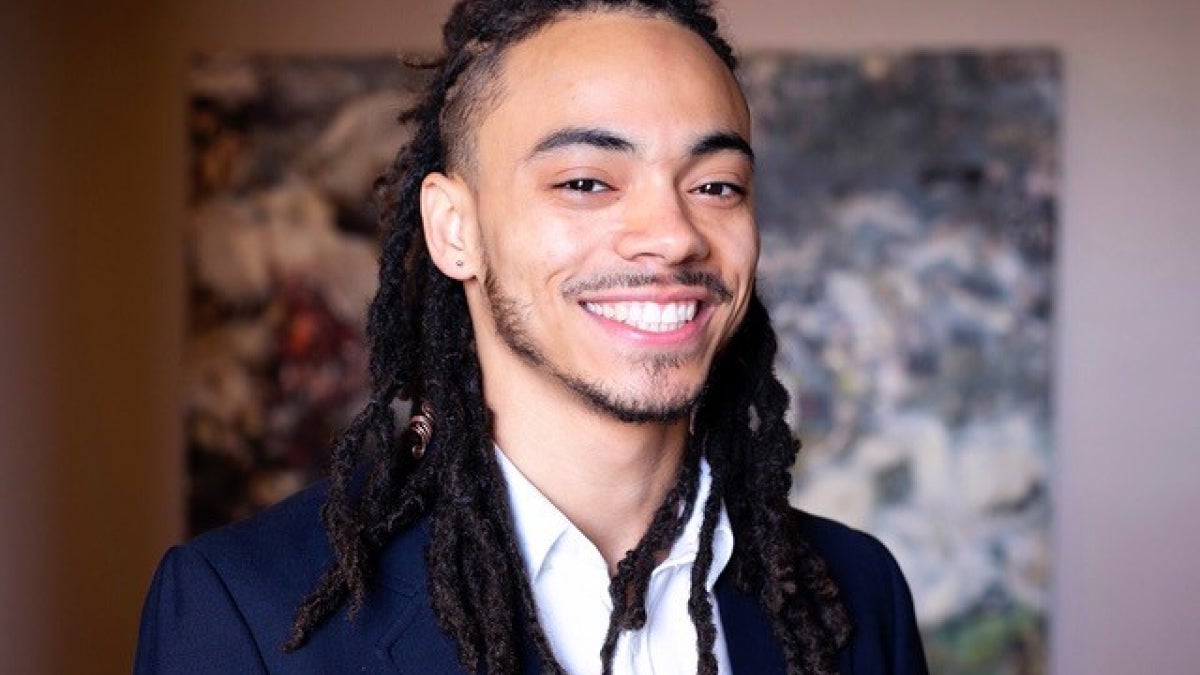Energy justice scholar joins College of Global Futures as Presidential Postdoctoral Fellow

Dominic Bednar
Having the air conditioning running on a hot summer day can be a necessity to survive the heat. But keeping your home cool comes at a high cost.
For many, paying the energy bill can be a burden. People who have lower incomes and live in older, less energy-efficient homes often have the highest bills.
For energy justice scholar Dominic Bednar, the problem of energy poverty is something he's working to solve. In fall 2021, he brought his work to Arizona State University's College of Global Futures as a Presidential Postdoctoral Fellow.
"Energy justice helps us understand how benefits and burdens are distributed across income and race," said Bednar, who joined the School for the Future of Innovation in Society and the School of Sustainability. "How do we move toward a just energy transition that centers equity and justice? Here in the U.S., we don't have any formal recognition that energy poverty is a distinct issue. Without first defining the problem, you can't effectively solve it. It also misguides how we measure the issue, and consequently misinforms how we evaluate deployed responses or solutions to the problem. We need to think deeply and critically about what energy poverty is and how it manifests in multiple different forms."
One of the principal areas Bednar is exploring is how residential energy efficiency can mitigate energy poverty, including home repairs that would save energy and lower energy bills. It's an interest that stems from his background in carpentry and engineering. After graduating with a bachelor's degree in civil engineering, Bednar narrowed his focus to sustainability and energy justice. While earning his PhD in environment and sustainability from the University of Michigan, he published a research paper on the challenges of energy justice and the effectiveness of federal energy assistance programs.
"Climates are different; governments are different, so not everyone is particularly on the same page," Bednar said. "I think there's a lot of confusion and misinformation that really stifles and stymies what our progress looks like. Another challenge is how we engage with people in a deeply authentic way that seeks to build long-term partnerships. What's the role of communities in this process of thinking about what our energy future looks like?"
Bednar is now preparing for his upcoming journey to Chile, where he will study energy poverty and efficiency as part of his Fulbright Scholar Award. His research will include the assessment of household energy needs and disparities using a community-based lens.
"I’m particularly interested in learning about Chileans' approaches to mitigating energy poverty institutionally and at the community level. Moreover, I’m excited to learn and watch how they develop a new constitution. I’m hoping to better understand and learn more about their energy needs and interests."
Bednar says the support he received in his first semester at the College of Global Futures has helped him pursue his research to find solutions to energy poverty.
"Everyone has the capacity to be disconnected from their energy, but what are the factors that make some people more vulnerable to energy poverty?" he said. "What makes some people more likely to fall behind on their utility bills or experience a utility shut-off? What ways can we move forward to anticipate those types of disconnections and move toward a future where energy is actually a human right for all?"
More Science and technology

Hack like you 'meme' it
What do pepperoni pizza, cat memes and an online dojo have in common?It turns out, these are all essential elements of a great…

ASU professor breeds new tomato variety, the 'Desert Dew'
In an era defined by climate volatility and resource scarcity, researchers are developing crops that can survive — and thrive —…

Science meets play: ASU researcher makes developmental science hands-on for families
On a Friday morning at the Edna Vihel Arts Center in Tempe, toddlers dip paint brushes into bright colors, decorating paper…

